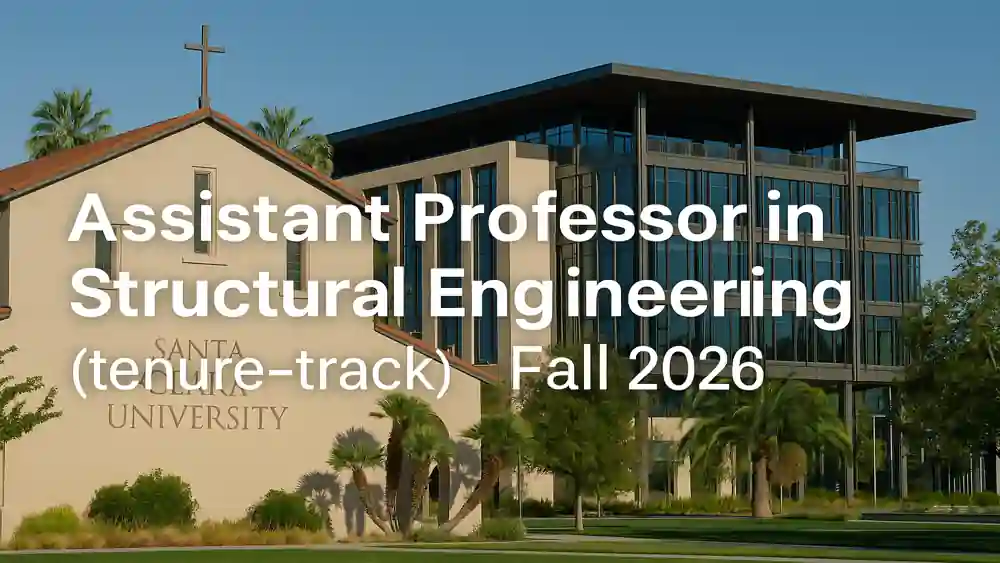Introduction: What This Fellowship Offers and Why It Matters
The IBSE Post-baccalaureate Fellowship is a full-time, on-campus research internship designed for recent graduates who want to develop rigorous skills at the junction of systems biology, data science, and engineering. Hosted by the Centre for Integrative Biology and Systems medicine (IBSE) at IIT Madras, the program combines faculty mentoring, methodical training, and advanced infrastructure to help fellows produce credible, reproducible research outcomes. It also promotes collaborative habits—code review, data documentation, and frequent seminars—that translate well into graduate study and professional roles.
Launch a research-ready career at the interface of biology and engineering. The IBSE Post-baccalaureate Fellowships at IIT Madras offer 1–2 years of structured, mentored, and interdisciplinary training with strong computing resources, conference support, and hands-on projects that accelerate publications, skills, and graduate-school or industry readiness.
Program Overview: A Bridge from Undergraduate Study to Research Impact
IBSE positions the post-baccalaureate track as a structured bridge between classroom learning and independent research. Fellows join active research groups, contribute to ongoing projects, and gradually take ownership of sub-problems with clear milestones.
Intended Outcomes
-
- Research maturity: Fellows learn to frame testable questions, select suitable analytical methods, and communicate findings clearly.
- Portfolio development: Well-curated code, datasets, and short working papers form a professionalportfolio that strengthens graduate applications.
- Collaboration skills: Regular colloquia and lab meetings encourage constructive critique and cross-disciplinary fluency.
Fellowship Duration
The program typically runs 1–2 years, which is long enough to design, iterate, and validate a complete study while building transferable skills.
Eligibility: Who Should Apply and When to Apply
The fellowship targets candidates who can contribute quickly and learn fast.
Academic Qualifications
-
- Bachelor’s degree completed within the last two years.
- Evidence of academic excellence, such as standout project work, awards, or high grades in relevant courses.
Readiness Indicators
Strong applicants present a coherent interest in biological systems, comfort with quantitative thinking, and a willingness to document and share code or workflows.
Selection Metrics: How Shortlisting Works
IBSE uses multiple indicators to predict success in a data-intensive, collaborative environment.
Core Criteria
-
- Academic pedigree: Depth in biology, mathematics, statistics, or computing—reflected in transcripts and capstone work.
- Programming proficiency: Practical skills in Python, R, or MATLAB for modeling and data analysis.
- Open-source mindset: Any public repositories, notebooks, or reproducible pipelines signal good research hygiene.
What to Emphasize
Applicants should foreground quantifiable outputs—e.g., GitHub commits, working demos, conference posters, or preprints—and explain their personal contribution to each.
Fellowship Benefits: Support Aligned with
Research Outcomes
IBSE structures benefits to remove friction and speed up learning.
Financial and Academic Support
-
- Monthly fellowship: ₹40,000 (consolidated) to support living and research needs.
- Advanced infrastructure: Access to CPU/GPU clusters for large-scale analytics, simulations, and machine learning.
- Dissemination: Funding for one national conference per year to present results and build a professional network.
- Ongoing learning: Regular colloquia and workshops featuring domain and method experts.
Why These Benefits Matter
Reliable funding and compute access allow fellows to run comprehensive experiments, iterate more often, and reach publishable conclusions sooner.
Research Focus Areas: Where Biology Meets Data and Design
IBSE encourages projects that apply computational and engineering methods to pressing biological questions.
Systems and Data Layers
-
- Systems genetics with India-specific cohorts to map genotype–phenotype links.
- Network/community detection in multi-omics to reveal regulatory modules and pathway interplay.
- Metabolic modeling for disease to explore flux changes, biomarkers, and intervention points.
Methods and Workflows
-
- Machine learning for clinical data (risk prediction, stratification, and outcome modeling).
- Process analytics and systems theory to optimize pipelines and experimental design.
- Biomedical NLP to mine literature or clinical text and integrate findings with structured datasets.
Application Guide: Materials,
Messaging, and Submission
IBSE follows a rolling submission model. Consequently, timely, complete applications receive quicker attention.
What to Prepare
-
- CV (PDF or shareable link): Include academic record, projects, programming skills, and any certifications.
- Concise research proposal (≈300–500 words): State the problem, justify its importance, outline data/methods, and describe milestones.
- Preferred mentors: Identify IBSE faculty whose interests align with yours and explain the overlap.
Where to Send
Email your materials to [email protected]. Ensure links are accessible and filenames are clear. Shortlisted candidates may be invited for interviews or brief technical presentations.
Why This Fellowship Matters: Value for Fellows and the Research Ecosystem
The program benefits individuals and institutions alike.
Early-Career Acceleration
Fellows gain credible outputs—analyses, tools, and posters—that significantly strengthen applications for graduate school or research roles.
Infrastructure and Mentorship
Modern bioscience depends on compute and collaboration. IBSE combines both, enabling faster iteration and better methodological grounding.
Interdisciplinary Citizenship
By working with biologists, clinicians, and engineers, fellows learn to translate across disciplines and defend results to varied audiences.
National Research Relevance
Projects that leverage India-specific datasets contribute to public-good knowledge and catalyze follow-on collaborations.










